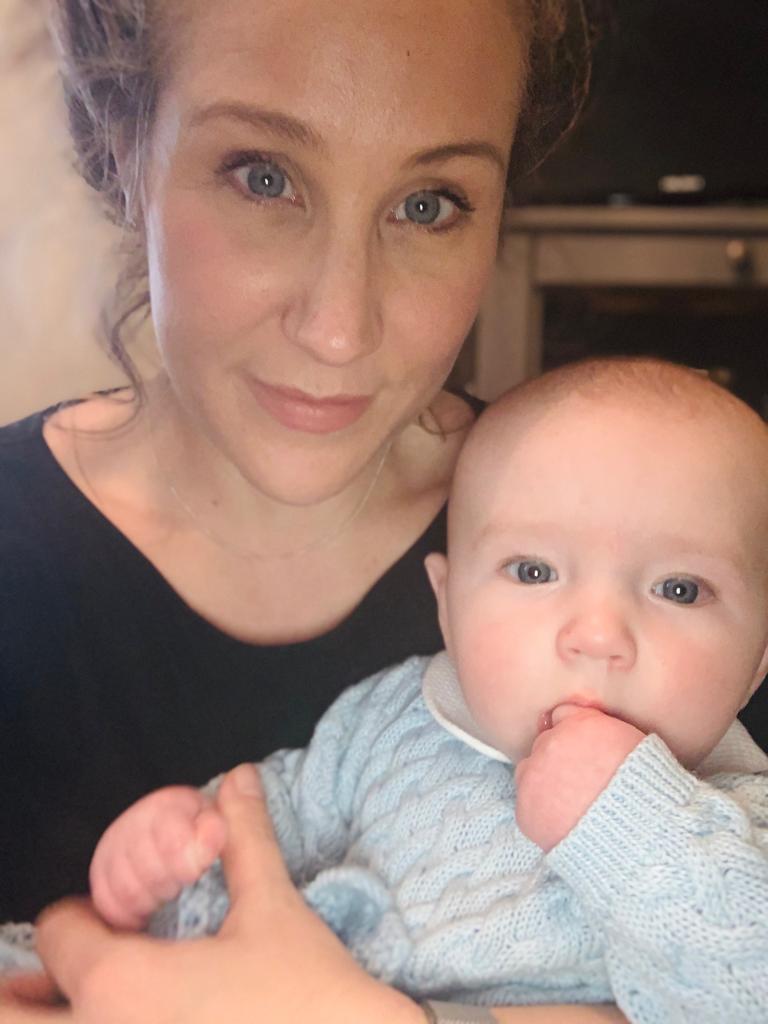Fertility benefits: 'I sold my house to pay for IVF, then my company helped me make a baby'
Many employers are now attempting to level the gender playing field by paying for fertility services. Marisa Bates reports on what it's meant for two women when employee perks move into family planning

Many employers are now attempting to level the gender playing field by paying for fertility services. Marisa Bates reports on what it's meant for two women when employee perks move into family planning
Katie Moon had been trying for children for four years, and it had taken a toll on her mental health. Eventually, the 40-year-old and her partner decided to opt for IVF, but in order to do so they had to sell their home and move into a one-bedroom flat to pay for the treatment. On the day her treatment was due to begin, she went into work. As she sat down at her desk and opened her emails, she found three separate colleagues had got in touch asking if she’d seen the news about the company’s new fertility benefits.
Her employer, LinkedIn, were now offering three rounds of IVF, completely paid for. 'I just sat there,' Kaite says. 'I thought there has to be some sort of catch.' But there wasn’t. She contacted HR and asked them if she was too late, having already begun the process. 'And they said, "no, that’s totally fine” I couldn’t believe it.'
Fertility benefits are part of a growing trend in the UK, already established in the US, where, according to recent reports, as many as 5% of firms with over 500 staff offer IVF and egg freezing, mostly the tech giants, including Facebook, Uber, Netflix, Google and Spotify. In London, others are following suit, like Apple and Goldman Sachs. In January of 2019, LinkedIn brought over its US policy to its UK employers offering up to £21,000 in treatment.

For Lisa Finnegan, 37, a senior HR director at LinkedIn, the policy is 'about creating a space whereby [staff] will not feel penalised if something goes wrong in their lives and that is increasingly important to people. Creating that space is the right thing to do.'
It’s hard to believe big companies do things just because they are 'right' but it is certainly savvy. For a company with a 50/50 gender split, a female-focused policy that will attract and retain talent in a millennial market, that is increasingly drawn to a company because of its culture as much as the salary on offer, it is smart move.
It also is an interesting shift to witness in terms of how companies are now willing to aid women in having children, not ‘punish’ them, as we have traditionally seen. According to data from the Equality and Human Rights Commission, 54,000 mothers every year are still being forced to leave their jobs because of how they are treated during their pregnancy, maternity leave or after they return to work. And for many, financial fertility benefits may be their only way to opt out of the IVF postcode lottery on the NHS. Whereas egg freezing is usually only available privately, except for those experiencing medical treatment which will affect their fertility.
Marie Claire Newsletter
Celebrity news, beauty, fashion advice, and fascinating features, delivered straight to your inbox!
Yet there is undoubted authenticity in Finnegan’s mission to help others. Finnegan had three rounds of IVF herself, and three miscarriages. It has been tough, she says. 'I flucatate. But I've made my peace. I’ve decided I'm focused on my marriage, my husband has been a rock throughout all this and I'm eternally grateful for that. And I’m grateful that I'm going to have the opportunity to help other people go through this and put in place just some basics, that I would literally have given my right arm for.'

Finnegan had her final round of IVF whilst working at LinkedIn who, she says, were very supportive. Things were not the same with her previous employer. 'I was back at work the next day after my miscarriage and told everyone I had a bad cough.' To combat the sort of workplace culture, along with LinkedIn, she’s helped develop the policy for staff based her own experiences: 'So we talked a lot about how we train our managers. How do we get our managers comfortable with having this type of conversation. Are we the type of company that employees feel that they can come to work, and really talk about something that is this intense?'
Katie directly benefited from well-trained managers. 'My manager is ten years younger than me, is male, and hadn't had children. And he was like, "Look, I have no idea what you're going through, but what can I do to help you?" And that was the whole process. It was also really great to be able to talk about it and explain to my team when I’d need time off. We were able to plan for me not being there. And so it meant that my team didn't have to stress - and it was also just really good for me to be able to be open about it.'
In October, Katie gave birth to her son, Arthur. She says the company is already in talks with her about her next potential role. Is there any resentment for such a generous policy, perhaps by those who don’t need that same treatment - people who don’t want children, for example. 'No,' she says. 'We're incredibly lucky that we're very inclusive. So there were never any problems because there are other benefits that are good for other people.' Is there any pressure to stay now she’s taken advantage of the benefit? 'LinkedIn is very much about preparing you for your next step. So I don't feel like I owe them any more than I did before. I just have a massive amount of respect for them.'
Of course this is a very expensive policy, but Katie believes there are ways other, smaller companies could follow suit. 'There is stuff that people can do, including management, like creating an open environment to talk about these things and offering people a more flexible environment around treatment. The more we can chat about these things, and open we are, the easier and better it is for everyone.
Companies with fertility benefits
Goldman Sachs: the financial services provider pays prospective parents on its payroll up to £15,500; patients are referred to a specialist via the company's private medical scheme, and are asked to pay for their fertility costs upfront before being reimbursed at a later date.
Apple: have been giving its employees the option to freeze their eggs up to a cost of £16,000 since 2014. It also offers female employees an extended maternity leave policy.
Blackrock: in September 2019, the global financial company began offering UK female employees a benefits programme that covers egg freezing and up to three years of storage. The firm claims it is ‘committed to helping employees thrive at work and in life... including support for building a family.’
Mitsubishi: established its Child-Planning leave system in 2011, which can be used for infertility treatment. Although the company does not reimburse or subsidise fertility treatment, it does offer an annual leave for female employees who are going through fertility treatment.
Google: offers its staff up to £60,000 in fertility benefits, including three IVF cycles and Pre-implantation Genetic Screening. It also provides egg-freezing for employees, as well as reimbursement for surrogacy and adoption fees. On top of these perks, it offers paid leave for new parents and provide them with up to £3,000 to help contribute towards costs such as nappies and baby formula.
The leading destination for fashion, beauty, shopping and finger-on-the-pulse views on the latest issues. Marie Claire's travel content helps you delight in discovering new destinations around the globe, offering a unique – and sometimes unchartered – travel experience. From new hotel openings to the destinations tipped to take over our travel calendars, this iconic name has it covered.
-
 Penn Badgley and Blake Lively kept their breakup a secret from the Gossip Girl cast and crew - here's what we know about their former relationship
Penn Badgley and Blake Lively kept their breakup a secret from the Gossip Girl cast and crew - here's what we know about their former relationshipBy Jenny Proudfoot
-
 Spring has finally sprung - 6 best outdoor workouts that are totally free and boost both body and mind
Spring has finally sprung - 6 best outdoor workouts that are totally free and boost both body and mindSoak in the nature and boost Vitamin D *and* endorphins.
By Anna Bartter
-
 This iconic rose perfume is a compliment magnet—it makes me feel ‘put together’ after just one spritz
This iconic rose perfume is a compliment magnet—it makes me feel ‘put together’ after just one spritzGrown-up and elegant, yet not at all dated.
By Denise Primbet